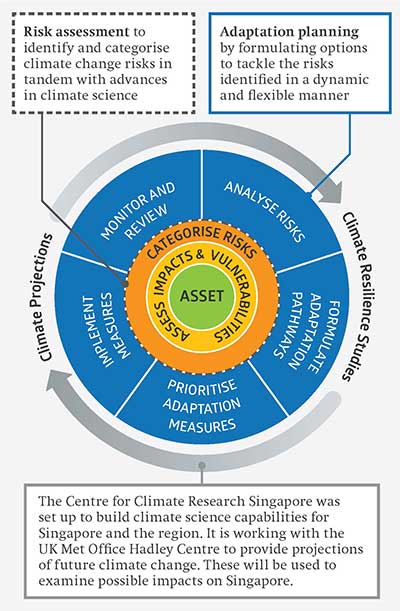Overview
ADAPTATION EFFORTS
Climate change affects Singapore's annual mean temperature, which has risen by 0.24°C per decade from 1984 to 2022. The recent ten years in 2010-2019 was the warmest decade on record at 27.95°C. The daily rainfall totals and frequency of days with heavier rainfall have also risen.
Additionally, the mean sea level is also projected to rise by 0.23m to 1.15m by the end of the century. This makes adaptation measures a necessity for Singapore to prepare for the effects and to increase resilience to the effects of climate change.
Singapore's Approach to Adaptation
Singapore has started making early preparations to adapt to the impact
of climate change. At the same time, our understanding of climate change
is continually evolving. To address the projected effects of climate change
over the next 50 to 100 years, the government has introduced a resilience
framework to guide our efforts in safeguarding Singapore over the long
term.
Singapore's Adaptation Approach

Source: Resilience Working Group
Being Flexible to Incorporate Future Findings
The Resilience Working Group (RWG) under
the Inter-Ministerial Committee on Climate Change (IMCCC) studies
Singapore's vulnerability to the effects of climate change and develops
long-term plans that ensures the nation's resilience to future environmental
changes.

